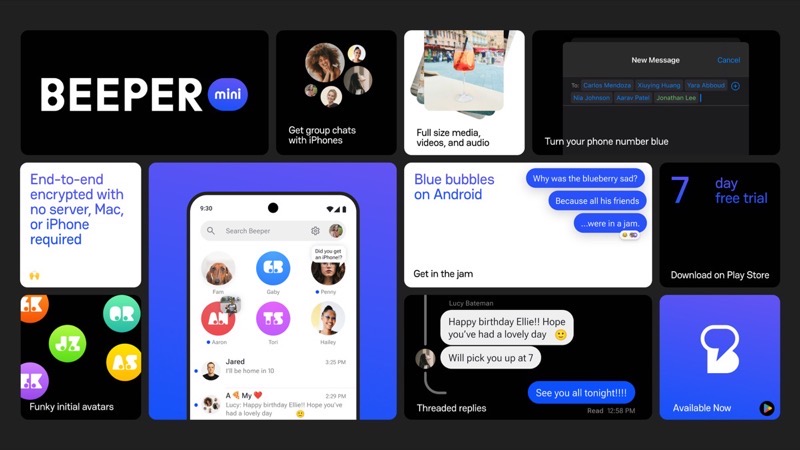
Apple to Keep Blocking Beeper iMessage App, Feds Ask Questions
The U.S. Justice Department’s antitrust lawyers met with representatives of the Android iMessage app Beeper Mini on December 12, as part of an ongoing investigation into Apple’s alleged anticompetitive behaviour. That’s according to sources speaking with the New York Times.
This four-year-old probe is gaining momentum, with Canadian Eric Migicovsky, co-founder of Beeper, the parent company of Beeper Mini, declining to comment on the specifics of the meeting as he was in attendance.
The Federal Trade Commission, in a recent blog post, announced its intention to scrutinize dominant market players that use privacy and security concerns to hinder interoperability between services. While the post did not specify any companies, it aligns with the ongoing battle involving Apple.
This issue has also caught the attention of the Senate Judiciary subcommittee on antitrust. Senators Amy Klobuchar and Mike Lee expressed concerns in a letter to the Justice Department about Apple potentially stifling competition.
Apple’s messaging strategy, which differentiates between iPhone and Android users, has been a significant part of its market approach. Messages between iPhone users appear in blue with additional features, while texts with Android users are basic and appear in green.
Amidst these challenges, James Gill, a 16-year-old computer hobbyist from Bethlehem, Pennsylvania, discovered a workaround for iMessage. By decrypting his iMessages, he found that Apple used its push notification system for message delivery. “It wasn’t genius insight,” said Mr. Gill, a junior at Saucon Valley High School. “I was just poking at it for a long time,” he told the Times.
Gill’s findings, published on GitHub, caught the attention of Migicovsky, who then offered him a job at Beeper Mini for $100 USD an hour, an upgrade from the $11 USD an hour he was making at McDonald’s as a cashier.
The job has proven to be challenging, with Apple updating iMessage multiple times since Beeper Mini’s release. “To block it entirely, they’ll have to come up with a way to require an iPhone serial number,” Mr. Gill stated. “Beeper will still come up with a workaround.”
Yesterday, Beeper released its final workaround to get the app working for Android users, requiring a jailbroken iPhone. The company said this would be its last attempt in its game of cat-and-mouse with Apple.
An Apple spokeswoman commented on the situation, stating that the company would continue updating iMessage due to security concerns. “These techniques posed significant risks to user security and privacy, including the potential for metadata exposure and enabling unwanted messages, spam, and phishing attacks,” she said.
Migicovsky disagrees with Apple’s stance, arguing that Apple’s actions force Android users to send unencrypted messages to iPhone users. He has made Beeper’s software code public, inviting Apple and cybersecurity experts to review it.
In a bid to resolve the standoff, Migicovsky reached out to Apple CEO Tim Cook, but has yet to receive a response. “This wasn’t our intention,” Mr. Migicovsky said. “We’re trying to make it work, within our control, for the good of the chat world.”
Apple is set to support RCS technology that will soon allow Android users to interact better with iMessage, but text message bubbles will still remain green.
Beeper doesn’t have a right to access Apple’s iMessage. It can continue to find workarounds but at the end of the day, it’s Apple’s right to stop a third party from using a hack to send iMessages from Android phones.


